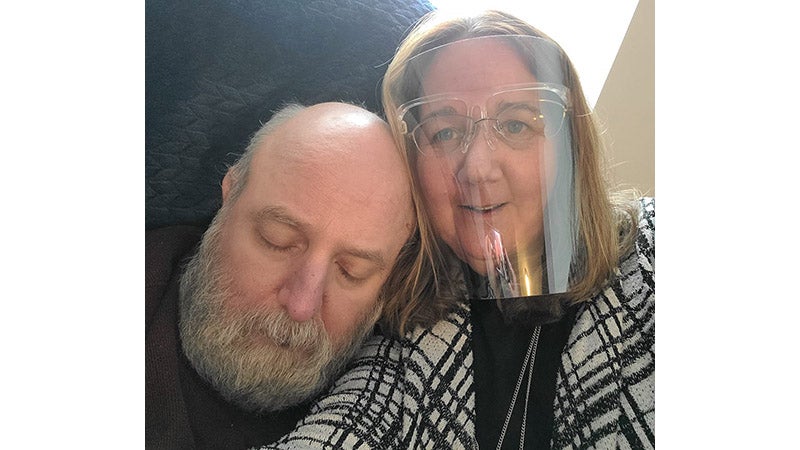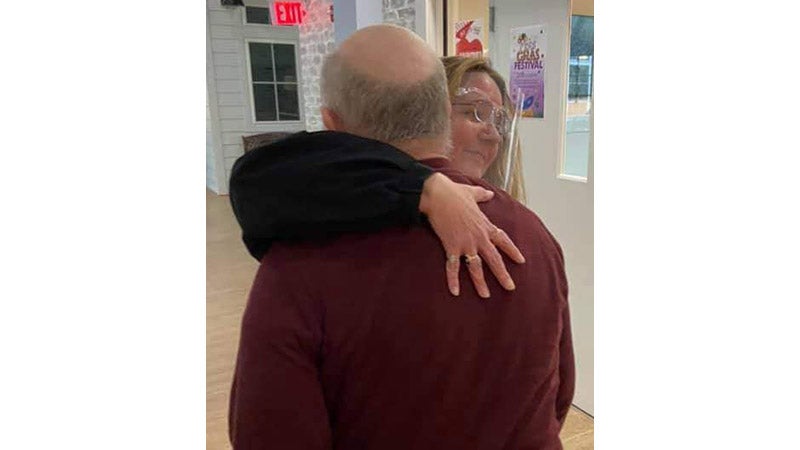First hug since pandemic
Published 5:46 pm Thursday, March 11, 2021
|
Getting your Trinity Audio player ready...
|
After 11 months of visits behind windows and plastic barriers, Patricia Berkeley recently got to hug her husband for the first time in months since the COVID-19 pandemic began.
Berkeley’s husband, Beaver, was diagnosed in December 2014 with Alzheimer’s and has been a resident at Runk & Pratt Pearls of Life Memory Support in Lynchburg since January 2019.
“It felt so good to be with him,” Berkeley said, “He kept watching me and seemed pleased for me to be around him. I was so concerned about how he would react after all this time.”
Berkeley said she could tell that her husband’s health had declined some, but she expected that.
Beaver, who was 55 at the time of diagnosis, is in the later stages of the disease.
The last inside visit Berkeley had with her husband was on March 14, 2020.
“All my other visits were through a window, under the tent, or in the lobby, all practicing social distancing or video chats,” she said.
With the ease in restrictions, Berkley said there are still some limitations, and regulations could change.
At the beginning of the pandemic Berkeley said she thought like many that restrictions would only last for a few weeks, but then the weeks turned into months.
“I was fine at first because I thought it would be for a couple of weeks,” Berkeley said. “I missed being able to spend time with him.”
Berkeley said she was afraid her husband would not recognize her once they were together again.
As for Beaver, Berkeley said he is not able to understand the situation.
“I am sure he knows something is different, but it hasn’t had a negative impact,” she said. “I think it’s harder for me. He is slowly dying, and I am missing valuable time.”
Ever since Beaver’s diagnosis, Berkeley has been a strong advocate for the fight against Alzheimer’s and for her husband’s health and well-being.
“The best medicine for an Alzheimer’s patient is socialization,” Berkeley said. “You just have to adapt to their world. As a caregiver, you have to be their advocate every step of the way, and as the disease progresses, you have to remember it’s the disease, not them. They can be aggressive or do some odd things because they don’t realize what they are doing.”
Berkeley said one of the hardest things about Alzheimer’s is watching someone you love lose all their memories.
“It’s not just about forgetting your name. You slowly lose your ability to do anything,” she said. “It’s just heartbreaking.”







